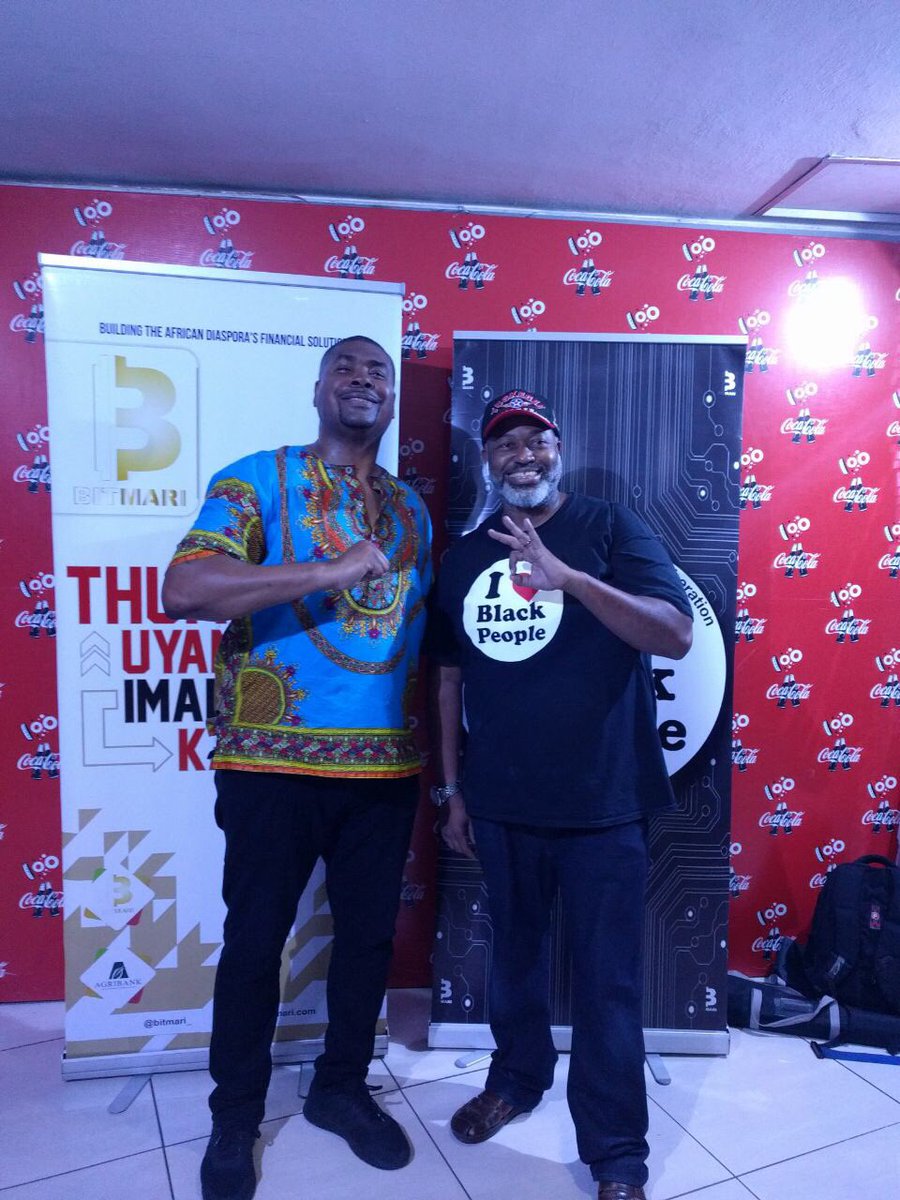By Byron Mutingwende
The Pan-African technological giants BitMari are playing an important role of assisting those in the diaspora to remit money back home at affordable rates in pursuit of growing the economy.
In June 2017 BitMari partnered with the Agricultural Bank of Zimbabwe (Agribank) to integrate Bitcoin and Blockchain technology into consumer offerings. BitMari users can cashout their money from any Agribank branch nationwide.
Christopher Mapondera, the co-founder of BitMari said most people in the diaspora didn’t realise the important role they can play in growing African economies. He made the remarks at the dinner reception of Tariq Nasheed, an African-American born in Detroit who was in Harare to fundraise for the Women Farmers Land and Agriculture Trust ((WFLA Trust) in Harare held at the Rainbow Towers Hotel on 25 January 2018.
“Most of the people in the diaspora don’t relaise the role they can play in growing their economies back home. They need to identify potential partners and investors to partner with. Africans can collaborate with diasporas to do something beneficial for both communities. Zimbabweans are gifted. We have some yong Zimbabweans doing very well at Harvard, MIT and Oxford just to mention a few top learning institutions worldwide. There is a lot that we have that we don’t appreciate.
“BitMari is bridging the gap between what we think we are and the reality. We can see that the Zimbabwean women are playing a significant role in the economy as evidenced by the women farmers here. We feel proud to partner these women for growing the economy. We are a Zimbabwean-grown technological company whose aim is to grow into a multinational company to improve Africa’s economy and its people,” Mapondera said.
BitMari is working with technologically gifted young Zimbabweans. These include Bukhosi Mhlanga the Operations Manager and Tongai Choto, a software developer.
“As we grow, we will send these youngsters around the globe to start up new things. We will support them to find and purse new opportunities. Through technology, it is now possible to bring the world together since now a person in Zimbabwe can hold a meeting with someone in America in real time.”
Mapondera added that Africans in the US remit $40 billion into Africa every year. Of that amount, 10 % ($4 billion) goes to money transfer companies like MoneyGram and Western Union. Zimbabweans in the diaspora remit between $1, 5 billion to $2 billion per year.
BitMari as a technological company aims to lower the cost of sending money to Africa since it handles smaller denominations at relatively low rates. Most people in the diaspora consider it a disincentive to send smaller amounts of money back home because of the high charges yet the smaller amounts make a huge difference in the lives of the people back home who need the money to meet small expenses like taking grain to the grinding mill or buying sugar.
Sinclair Skinner, the BitMari co-founder encouraged the youths to improve technological research and innovation just as previous generations fought against colonialism in pursuit of freedom and equality for all.
“Older generations should inspire youngsters to have their own aspirations. The Great Zimbabwe is a reflection of the accomplishments of the Stone Age Shona people who built great walls without mortar that are standing up to this day. Zimbabweans should stop looking at themselves from a negative standpoint. Just like Tariq who fights for black excellence, BitMari is competing with the likes of Western Union although its roots are Pan-African,” Skinner said.
Nasheed came to Zimbabwe to help fundraise for the WFLA Trsut. He has a target of raising $80 000 which will be distributed to women’s groups managed by the women’s leadership. He is an author, blogger, filmmaker and television personality.

“I wanted to document the history of the black people through Hidden Colours which is the biggest selling documentary on black history. This is based on the history of African and aboriginal peoples. The film produced in 2011, had a limited theatrical release around the US before being available on DVD,” he said
Nasheed’s follow-up film and DV, Hidden Colours 2: The Triumph of Melanin, was released in 2012. In 2014, Nasheed released Hidden Colours 3, and Hidden Colours 4 was released in 2016.
He has produced a documentary about the history of Haiti called 1804 that was released in the fall of 2017. 1804: The Hidden History of Haiti was screened at Ster Kinekor Eastgate in Harare on the 27th of January at 1930Hrs.
